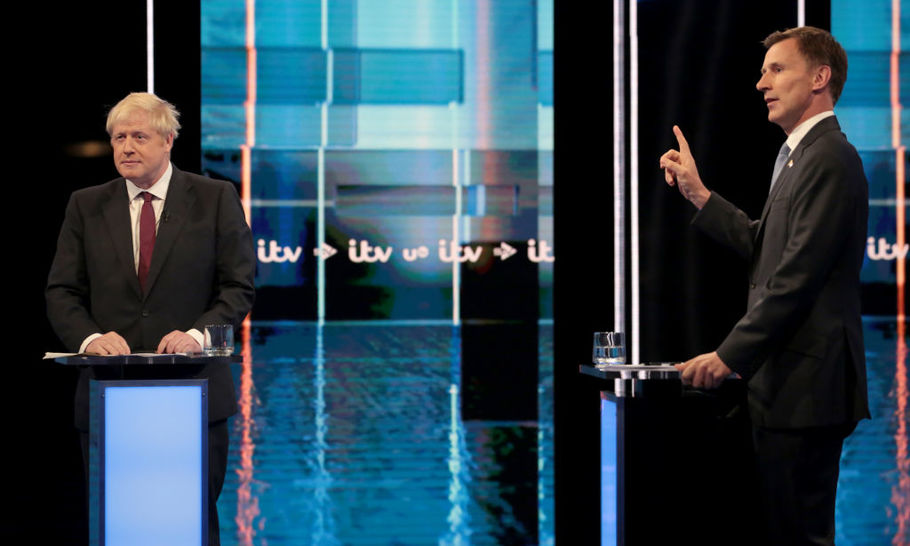Please politicians, spare us the TV debates

(Photo by Matt Frost/ITV via Getty Images)
Predictably, mere hours after the 2019 general election was announced, politicians and journalists began calling for leaders’ TV debates.
Televised debates came over from the United States nine years ago. The idea was to have Gordon Brown and David Cameron go at each other in prime-time televised slots. Brown and Cameron said it would be okay to have the then Lib Dem leader, Nick Clegg, share the stage. They presumably thought this well-meaning political lightweight would provide a few giggles and make them look good. But much to the astonishment of the political world, Clegg won the debates hands down. The result was a short-lived phenomenon known as ‘Cleggmania’.
In 2015, the format got in a bit of a pickle. After ‘Cleggmania’, David Cameron and Ed Miliband would have quietly parked the format, but every other party leader thought that if Clegg had his chance to shine in 2010, they needed a slice of the action in 2015. They managed to bounce everyone into having four debates of varying formats: one was a straight shootout between Cameron and Miliband, in another they were joined by Clegg, Nicola Sturgeon, Nigel Farage, Natalie Bennett and Leanne Wood. Cameron and Clegg refused to turn up to one debate and nobody really knows why. We even had a separate unofficial debate between Clegg and Farage: a sort of mano-a-mano duel between “progressive” and “populist” (Farage took Clegg to the cleaners.)
The 2016 EU referendum gave us another opportunity to have a televised examination: this time in the form of the BBC’s ‘Great Debate’. Six thousand partisan supporters crowded into Wembley Arena to cheer or boo three Remain and three Leave advocates. For two hours, politicians traded sound bites and called the other side liars. The result was simultaneously boring and ugly.
And if the format was in trouble in 2016, by the 2017 general election, it had completely collapsed. The highlight was that Theresa May failed to turn up to a single debate.
Earlier this year, the BBC gave us two set pieces around the Tory Party leadership election. The first was a leadership debate called ‘Our next Prime Minister’. The five candidates had to sit on bar stools in front of a gigantic TV screen on which members of the public asked questions. The result was a car crash. At times, the normally peerless Emily Maitlis, lost all control of the debate, with candidates shouting across each other so nothing could be deciphered. The main talking point was the “members of public” selected to take part. One had been on the Labour Party payroll, and another was an avowed anti-Semite. The only other highlight was Rory Stewart taking his tie off halfway through the programme.
The second set piece happened when Boris Johnson and Jeremy Hunt were left in the race. They both accepted one-on-one interviews with Andrew Neil. It turns out a professional interviewer, such as Neil, backed up with a horde of researchers, can cross examine a politician very well. Far better, in fact, than a debate consisting of politicians chucking insults or shouting each other down.
So this election, let’s scrap the TV debate format. The one thing we should have learnt over the last nine years is that these political set-pieces might work in America, but they’re useless in the UK. Far better for each leader to sit down with someone like Andrew Neil for an hour to have their manifestos properly examined.





